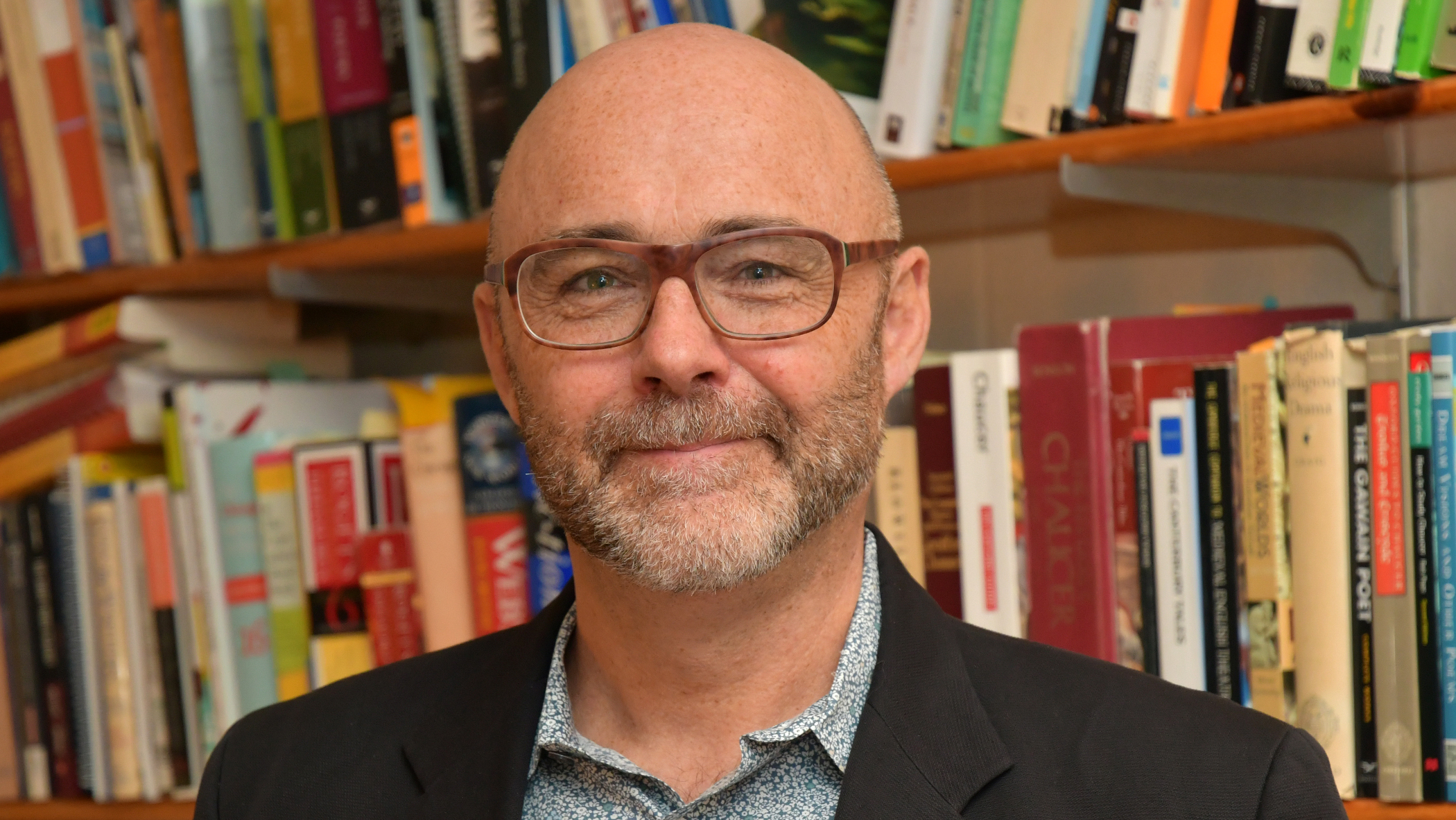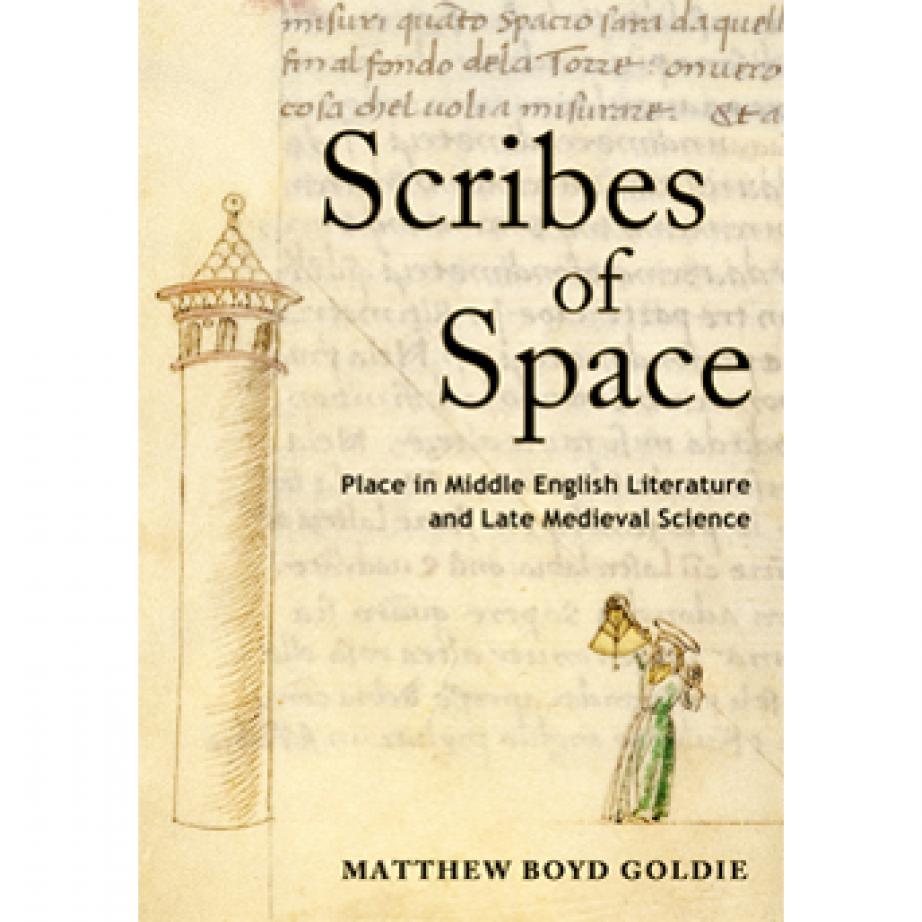Monday, Mar 11, 2019
'Scribes of Space' is latest scholarly publication by Dr. Matthew Boyd Goldie
by Adam Grybowski
Recognizing the fundamental relationship between location and existence, Aristotle once observed that “things that are are somewhere" and "what is not is nowhere.”
The concept of existing in a particular space is the subject of Dr. Matthew Boyd Goldie’s new book, Scribes of Space, published by Cornell University Press. A professor of English literature in Rider University's College of Liberal Arts and Sciences, Goldie draws on medieval science, mechanical arts and literature to argue that the conception of space — the everyday physical areas we perceive and through which we move — underwent critical transformations between the 13th and 15th centuries.
The book pairs late medieval physics and poetry to uncover how people’s spatial imagination and understanding evolved in Britain at the time. “It seems on the face of it that physics and poetry are opposed to each other, but there’s been quite a lot of work in literary studies that shows how the two are not so different,” Goldie says. “I was following in that strain.”
In his discussion of space, Goldie relies on a distinction between local and global space. Whereas global space is concerned with universes, globes and nations, local space is defined by the more immediate spaces encountered every day, such as towns, villages and roads.
“Travel accounts and world maps show that people in the Middle Ages were interested in global imaginings of the world,” Goldie says. “The local area is more significant, though, because it’s experienced much more frequently.”
Because Goldie’s previous book, The Idea of the Antipodes: Place, People, Voices (Routledge Research in Postcolonial Literatures, 2010), explored, in part, global space, it can be seen as a kind of companion to his new publication. He is also the author of Middle English Literature: A Historical Sourcebook (Oxford: Blackwell, 2003), and he has just published two more articles on space in Medieval English Travel (Oxford University Press, 2019) and the journal Studies in the Age of Chaucer (volume 40, 2018).
Born in New Zealand, Goldie received a bachelor's in English and philosophy from Victoria University before traveling to the United States to pursue a Master of Fine Arts in Creative Writing (Poetry) from the City University of New York, where he studied under Allen Ginsberg, the Beat Generation poet who became a literary icon for his poem Howl. He recalls Ginsberg beginning every class with a meditation. “He was very humane and a very generous teacher, especially given his status,” Goldie says.
After he received his master's, Goldie enrolled in CUNY's Graduate Center, where he went on to receive a doctorate in English and certificate in medieval studies. “During my M.F.A., I got more interested in studying literature,” he says. “When I entered the Ph.D. program, I thought I was going to study postcolonial literature, but I wanted more of a challenge, and medieval literature is challenging. It is both familiar and very weird. I was drawn to the strangeness of it, and that’s something that still invigorates me.”
At Rider, where he has been a professor since 2000, Goldie teaches a wide range of classes but specializes in Middle English literature. Geoffrey Chaucer’s work is examined in Scribes of Space, particularly poems such as The House of Fame, The Parliament of Fowls, and The Canterbury Tales, and the great poet of the Middle Ages remains central to educating Goldie's students.
"Part of the reason Chaucer's significant is because he wrote in English during the great revival of English literature in the late 14th century,” he says. “Chaucer is always relevant; he’s always interesting. He’s complex."
The new book, Goldie hopes, will appeal to audiences larger than Chaucer scholars. “It’s harder and harder to get published today, and in the field of Middle English literature, the publication of a book is something that everyone notices and reads,” Goldie says. “But I hope geographers will also look at it, as well as those who are interested in the history of science and in conceptualizing space more broadly.”
Dr. Matthew Boyd Goldie will discuss his new book, Scribes of Space, during an English Department faculty forum on April 4 at 12:00 p.m. in Fine Arts 323.


